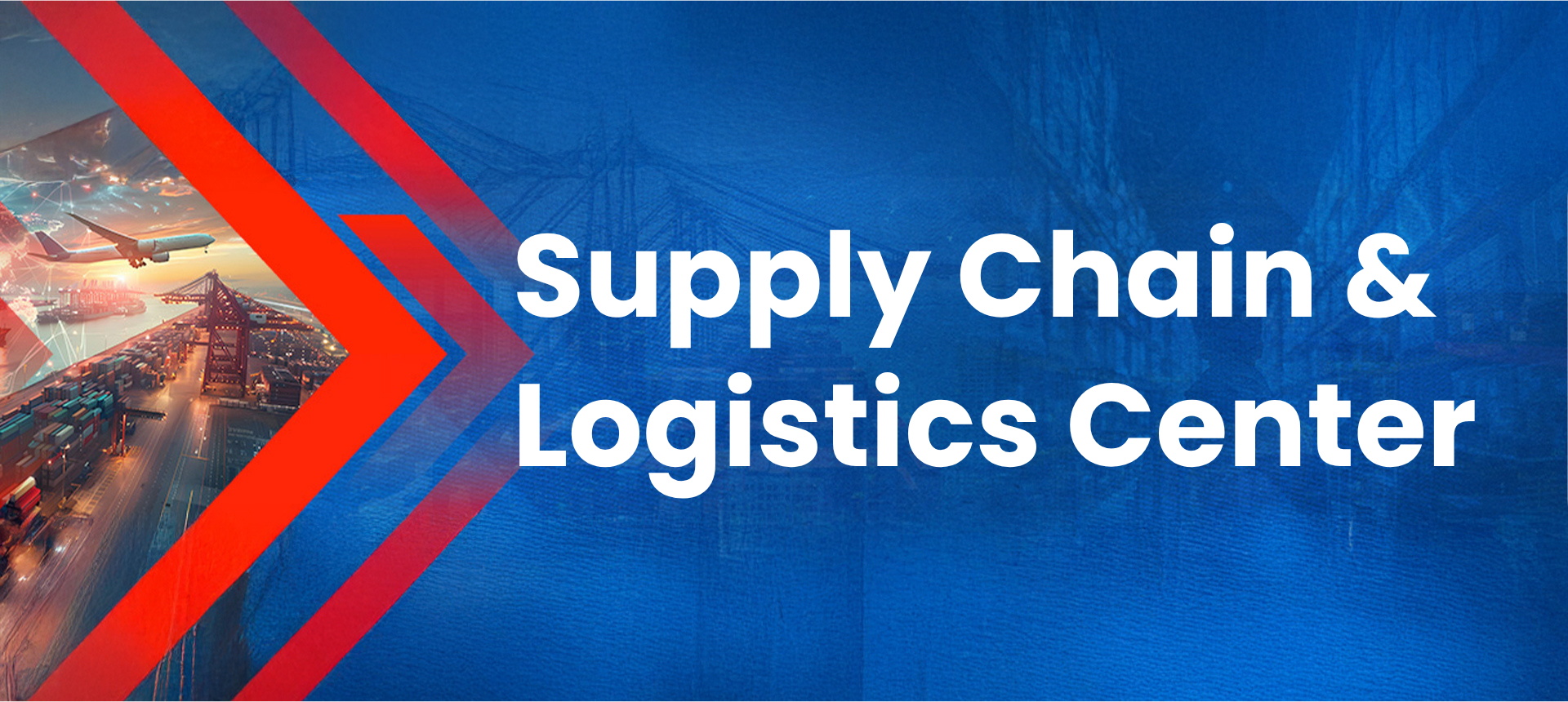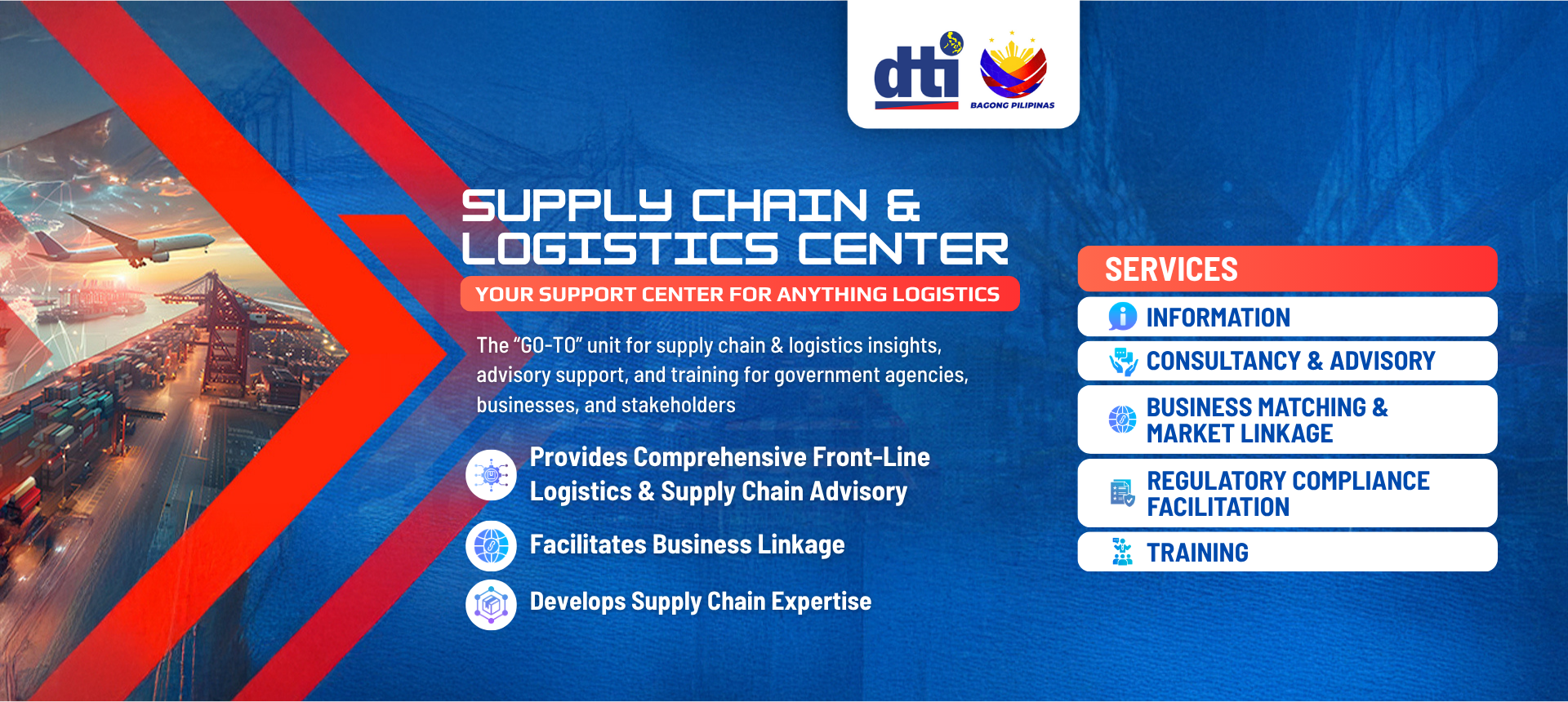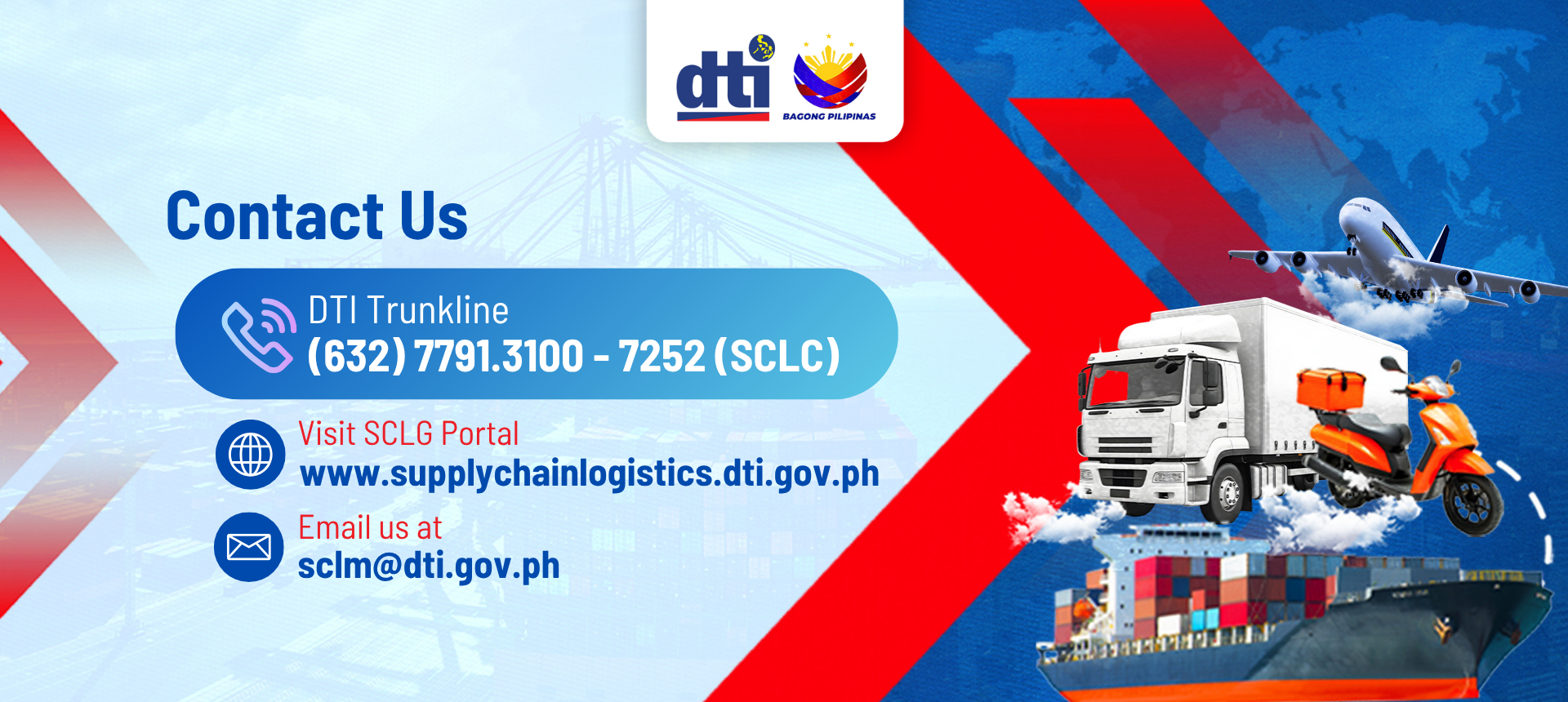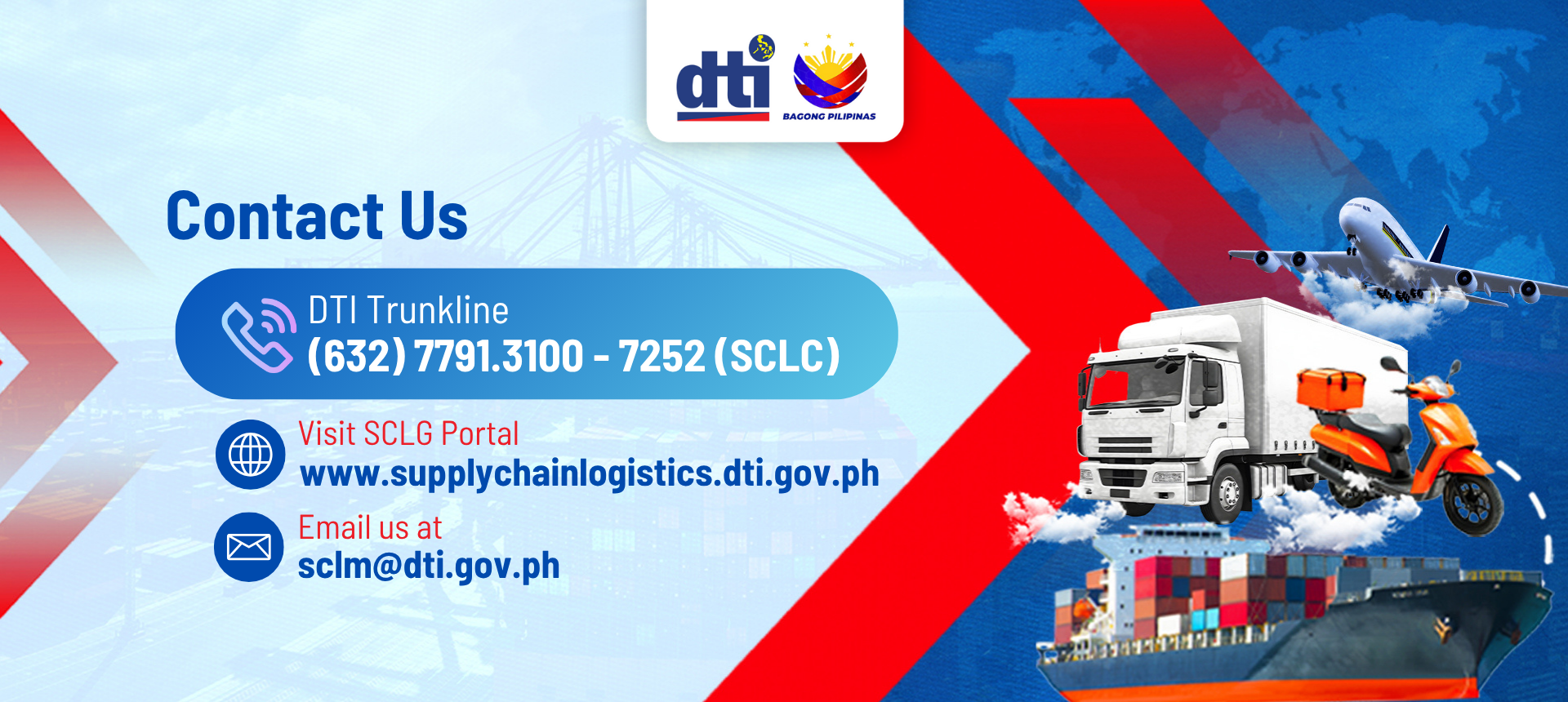Supply Chain and Logistics Group
Department Order 25-07 Series 2025
The Supply Chain and Logistics Group shall play a vital role in streamlining supply chain networks and logistics operations by identifying and addressing gaps, bottlenecks, and inefficiencies. ln coordination with other functional groups, the SCLG shall develop comprehensive solutions and lead projects to enhance operational performance and strengthen supply chain resilience.
STAKEHOLDER ENGAGEMENT
Rebrand Logistics and Supply Chain Philippines and Establish Stronger Partnerships (internal + external).
• Truckers Associations + Last Mile Delivery Service
• Wholesale & Retail Trade
• Domestic & International Shipping Lines
• Terminal Operators
• Container Yard Operator
• Freight Forwarders
• Port Users
• LSPH Air
• Customs Brokers
• Cold Storage + Warehouse
SUPPLY CHAIN MAPPING
SCLG shall:
• Create and Analyze Supply Chain Maps for DTI priority commodities
• Develop a Comprehensive Supply Chain Database
• Identify and Address Critical Supply Chain Challenges
Coverage:
• Basic Necessities and Prime Commodities (BNPCs): Canned sardines, candle, bottled water, instant noodles, canned meat, and bread
• Priority agri-based commodities: coffee, cacao, mango, salt, coconut, abaca, egg
• Priority exports: electronics
POLICY
Formulate data-driven policy measures to improve efficiency and competitiveness of logistics services and wholesale and retail sector.
• National Logistics Strategy + National Logistics Investment Plan
• Section G: Job Blueprint
• Amended Retail Trade Liberalization Act
• Supply Chain Index
• Legislative Agenda
• Supply Chain Bulletin
• Speaking Engagements
• Development of inputs and position papers
INVESTMENT PROMOTION
• Promote Investments – Attract local and foreign investors
• Enhance Sector Competitiveness – Position the Philippines as a strategic logistics hub in Asia
• Facilitate Public-Private Partnerships – Encourage collaboration between the government and private sector
• Support Digital Transformation – Highlight the role of technology and automation in modernizing logistics services
• Align with National Development Goals – Ensure the logistics sector contributes to economic growth, job creation, and regional developmentAdvance Investment Promotion Efforts – Strengthen the Philippines’ position in the global logistics market
SKILLS AND WORKFORCE DEVELOPMENT
• Strengthen partnerships with TESDA and stakeholders
• Enhance workforce skills through targeted training
• Develop industry-aligned training modules and curricula
• Review and improve existing logistics programs
• Expand digital learning with certification courses
• Align education with logistics sector needs




























































